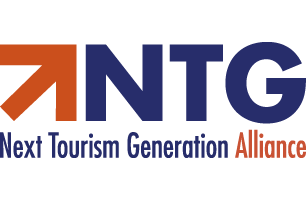Innovating and renewing Skills Intelligence | Recap 1st Pantour webinar
Fast developments in society and the tourism sector led to a new landscape for companies and workers in the industry. Also, due to the pandemic, many jobs in the sector have changed rapidly and new ones have emerged. At the start of the PANTOUR project, a thorough secondary data analysis has been done on current and future skills needs for the tourism industry. Existing data have been analysed, on global and European industry reports, EU policy documents, consultancy papers, and academic research. This has rendered a broad understanding of the status of skills in the tourism industry and what is needed for the future. In this blog, we will share some first insights from these analyses.
We invited country representatives from West Europe, but also countries related to the central and southern parts to talk about Innovating and Renewing Skills Intelligence during our last webinar. In this blog, we share some highlights of the webinar and give you insights in what to expect from this upcoming report, based on the desk research analyses.
Insights from Spain
The skills analysis of Spain provided high-quality country insights that illustrate an overview of the travel and tourism industry in Spain. Tourism’s contribution to the Spanish GDP is historically considered high with 14% of its total economy. The tourism sector distribution in Spain is very diverse. The analysis has clarified the main points related to tourism problems such as depopulation, seasonality, oversaturation, low tourism innovation, and tourism phobia. Problem identification in tourism is important in order to create a strategic plan containing DGS skills that could be improved through PANTOUR. In the webinar below, we further address the digital, social, and green skills that should be prioritized and how dissemination is assured among businesses and professionals in Spain.
Insights from Portugal
Portugal presented a comprehensive country desk research that illustrates the advancement of the tourism and travel sector in the country. We know that sometimes expertise, low scarcity, and economic conditions do influence the advancement of tourism skills and demands. During the webinar that you can re-watch below, more context is given about in which way does Portugal address and increase benefits in the tourism sector, programs for welfare, and other opportunities.
There is a positive tourism trend in terms of domestic consumption and sustainability as well as a circular economy. The study has further provided a comprehensive illustration of Portugal’s tourism as well as its approaches to digital, social, and green-related skills. There are programs/ public initiatives, start-ups, and incubators dedicated to tourism that work on digital, green, and social skills related to tourism that are shared in the webinar. Also, sustainability is very much related to the tourism recovery plan launched by public initiatives in Portugal.
Another great example is the programs offered by NOVA IMS to provide training for senior-level staff to face the challenges of globalization and a competitive market. This is really nice, because that means we are not only providing the new generation with skills but middle age people are considered as well and need to have updated knowledge about technology, suitable for their capacity as well.
Insights from Finland
芬兰的研究意味着女人的统治地位n in the tourism sector (about 71%). It is also interesting to look into these characteristics, especially with regards to identifying factors related to gender roles, other suggestions addressing gender equality, and which type of tourism business activities demands more involvement from the male/female gender. Despite the seasonal nature of tourism, it is relevant to reflect on challenges at the management level that span from junior to senior leadership and to which extent specific skills/criteria shall be added in order to reach a balanced tourism goal. Finland is also well-known for its wellness tourism where the sauna is one of the local heritage that is extensively integrated into its tourism offers. Nature and wellness need certain digital, green, and social-related expertise and skills that shall be addressed in Pantour and are explained in the webinar below.
Insights from Bulgaria
Despite the scarcity of economic skills and expertise, Bulgaria does have a lot of programs and it is interesting to see how the juggle with limitations is still advancing tourism. Extensive studies and best practices conducted in Bulgaria are of quality contribution; the digital initiatives and online competence platforms might serve as good references in the Pantour project. There are existing incubators at the national and regional levels that are interesting.
As it is reported that there is a “lack of a precise evaluation on the tourist employers’ need of staff with particular knowledge and skills” it remains interesting to hear some thoughts about ideal evaluation, the way of evaluating that may sustainably fulfill the expectations of the involved stakeholders. In the webinar below, we elaborate on this topic.
Insights from France
The “Destination France” Plan is a medium-long-term project not only to mitigate the effects of the Pandemic and the war in Ukraine, but also to develop a strategy to strengthen the tourism sector in France and its firm commitment to quality in skills, employment, and sustainability of French tourism products. Furthermore, there are some innovative measures for the digitalisation and greening of the tourism sector in France; support for start-ups, France Tourism Lab, the Digital Tourism Community, and measures for the sustainability of the destination. Watch the webinar below to learn more.


No Comments